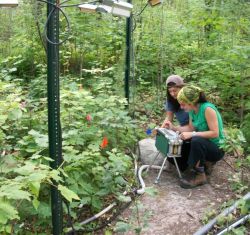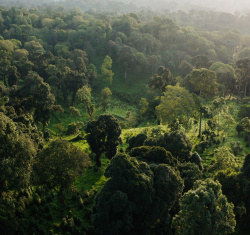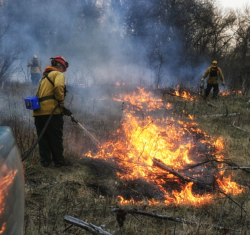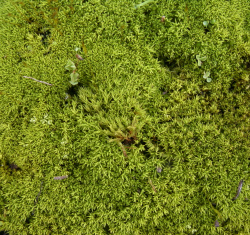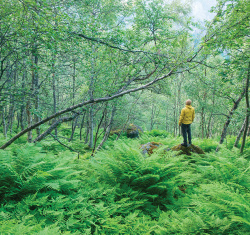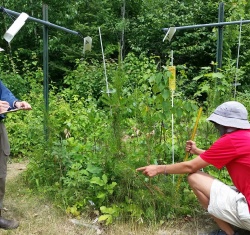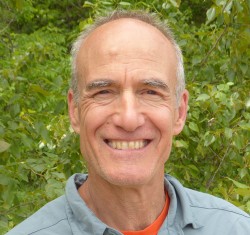
 back to all faculty
back to all faculty
Peter Reich

About
Dr. Peter Reich, a renowned expert in physiology and ecology, is Director of the Institute for Global Change Biology. Reich, who has conducted global change research on plants, soils, and ecosystems across a range of scales, maintains a joint affiliation at the University of Minnesota (UMN), where he is a Regents Professor. Reich was also the Chief Scientist at the Hawkesbury Institute for the Environment at Western Sydney University in Australia from 2011 to 2021. He is a member of the National Academy of Sciences of the United States and the American Academy of Arts and Sciences, a fellow of the Ecological Society of America, and a BBVA Prize Laureate (BBVA Foundation Frontiers of Knowledge Award in Ecology and Conservation Biology). He also helped launch the science education channel, MinuteEarth, which has more than 500 million views on YouTube and other platforms.
Publications
Recent Representative Publications
- Liang G, A Stefanski, WC Eddy, R Bermudez, , RA Montgomery, SE Hobbie, RL Rich, PB Reich. 2024. Soil moisture regulates the response of soil respiration to long-term warming in a southern boreal forest. Nature Geoscience (in press)
- Qu X et al. 2024. Deforestation impacts soil biodiversity and ecosystem services worldwide. Proc Natl Acad Sci 121 (13), e2318475121
- Reich PB, N Mohanbabu, F Isbell, SE Hobbie. 2024. High CO2 dampens and then amplifies N-induced diversity loss over 24 years. Nature (in press)
- Chen X, AR Taylor, PB Reich, M Hisano, HYH Chen, S Chang. 2023. Tree diversity increases decadal forest soil carbon and nitrogen accrual. Nature 618, 94–101 doi: 10.1038/s41586-023-05941-9.
- Mirabel A., MP Girardin, J Metsaranta, D Way, PB Reich. 2023. Increasing atmospheric dryness reduces boreal forest tree growth. Nature Communications 14:6901 https://doi.org/10.1038/s41467-023-42466-1
- Mo L, CN Zohner, PB Reich et al. 2023. A comprehensive global assessment of the natural forest carbon potential. Nature 624, 92–101 doi: 10.1038/s41586-023-06723-z.
- Pellegrini AFA, PB Reich, et al. 2023. Soil carbon storage capacity of drylands under altered fire regimes. 2023. Nature Climate Change 13, 1089–1094 https://doi.org/10.1038/s41558-023-01800-7
My research focuses on understanding and stewarding nature—as that is among our most important collective challenges in the 21st century. How rapidly and where will climate change wreak havoc with our natural and managed ecosystems? How many tree species will go extinct in the next 50 years and why does it matter? Will ecosystems continue to sequester additional carbon and thus help to slow climate change? Can traits simplify the complexity of ecology enough that we can make predictable sense of it? Raising such questions is easier than answering them. To help address them I engage in small-group to large-team studies at scales from leaf to globe and on topics from biodiversity to biogeochemistry to climate change-social justice interactions. This work ranges from ecosystem-scale field experiments with factors such as CO2, temperature, rainfall, fire and biodiversity; to cross-continental observations and earth system modeling. Our work focuses on forests and grasslands of the temperate and boreal biomes, but also includes research in many other ecosystem types and regions.
Ranked #1 scientist in the world in ecology and evolution by Research.com (2022, 2023, 2024)
BBVA Prize Laureate (BBVA Foundation Frontiers of Knowledge Award in Ecology and Conservation Biology; 2010)
National Academy of Sciences of the United States, member (elected 2018)
Google Scholar profile (1 August, 2024): total ≈180,000 citations from >760 articles, >88,000 citations since 2019, ≈17,000 citations in 2023; >370 articles with >100 citations; h-index = 204
Ph.D. 1983, Cornell University


